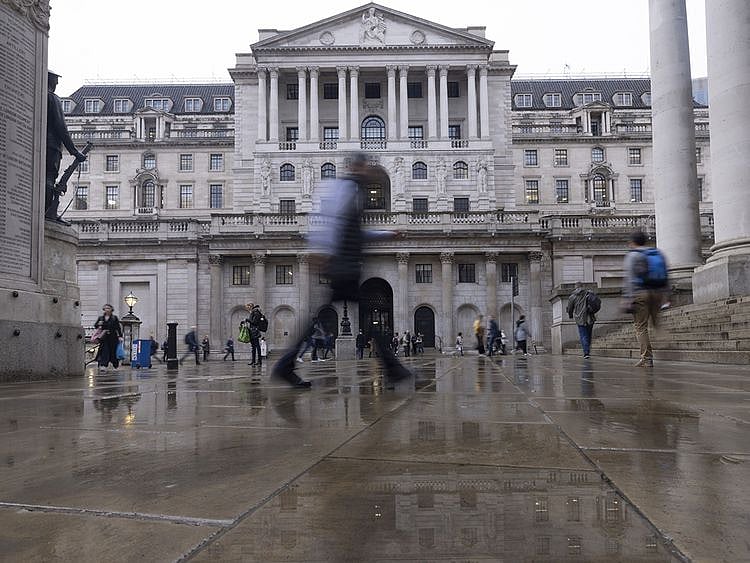Bank of England policy makers split on view of UK financial conditions
Investors have been betting on a higher peak for BOE’s key lending rate in recent weeks

The Bank of England’s arch dove has warned that financial conditions have tightened “rapidly and materially” in the UK, a sharp break from the assessment of a fellow rate-setter.
Silvana Tenreyro, an external member of the BOE’s nine-member Monetary Policy Committee, said there is a risk that the UK central bank has overtightened and will undershoot its 2 per cent inflation target in the medium term.
The remarks underscore growing divisions at the BOE, which is looking at how much further to raise interest rates in its fight against inflation. Tenreyro’s assessment differs with the view from Catherine Mann, who said financial conditions are “not much tighter than on average”.
Mann argued that financial conditions have begun to loosen again after the BOE’s aggressive hiking cycle.
In slides to accompany her appearance on Friday, Tenreyro said that “policy and financial conditions have tightened rapidly and materially”. The slides said that far tighter policy “worsens” the medium-term inflation undershoot.
“This has been the fastest increase in rates and overall tightening in the Monetary Policy Committee’s history,” Tenreyro said at the event at Columbia University in New York with an official from the US Federal Reserve. “The main risk for the UK is that we have overtightened.”
She argued that the hit to UK real wages will weaken demand and cause a loosening in the labor market, weighing on inflation.
Tenreyro is the BOE’s chief dove and voted to pause the central bank’s most aggressive hiking cycle in three decades at the last monetary policy meeting.
She has previously signaled she will consider a cut to interest rates in the coming months, arguing that policy is “already too tight” and that “very little” of the previous hikes have fed through to the economy.
Mann showed her own slide on Thursday suggesting financial conditions had loosened recently. She said the BOE has been too slow to raise interest rates. Her conclusion was that the BOE had further to go in restraining inflation and that suggesting a pivot at this point would prompt a counter-productive loosening in markets.
However, investors have been betting on a higher peak for the BOE’s key lending rate in recent weeks amid signs of resilience in recent economic data. Threadneedle Street is also watching wage data closely for signs that rapid pay rises will mean more persistent price pressures.
Markets are fully pricing in a quarter of a percentage point increase at the next meeting in March and are leaning toward a further half point rise by September. That would push up the BOE’s base rate to 4.75 per cent.
Mann warned on Thursday that more tightening will be needed and that a “pivot is not imminent”.
She said the UK risks being left with the “worst of both worlds” in high prices and weaker growth if the BOE fails to do enough to rein in inflation. She said markets are starting to anticipate a pivot from the BOE and therefore have lowered market interest rates.
“Financial conditions have again begun to loosen,” Mann said on February 23. “Financial conditions are looser relative to what they might be otherwise, due to the depreciation of Sterling and a falling equity risk premium, which have global factors embedded in them.”
Tenreyro said there are two arguments for moving slowly on rate rises. One is to avoid creating a financial crisis with the rate increases, and the other is to see about how persistent inflation will be.
That also sharply contrasts with Mann’s view, which is that front-loading rate hikes will halt inflation more quickly and allow for a lower peak. Mann thinks the risk of not doing enough to contain inflation far outweighs the risk of doing too much.
Sign up for the Daily Briefing
Get the latest news and updates straight to your inbox
Network Links
GN StoreDownload our app
© Al Nisr Publishing LLC 2025. All rights reserved.